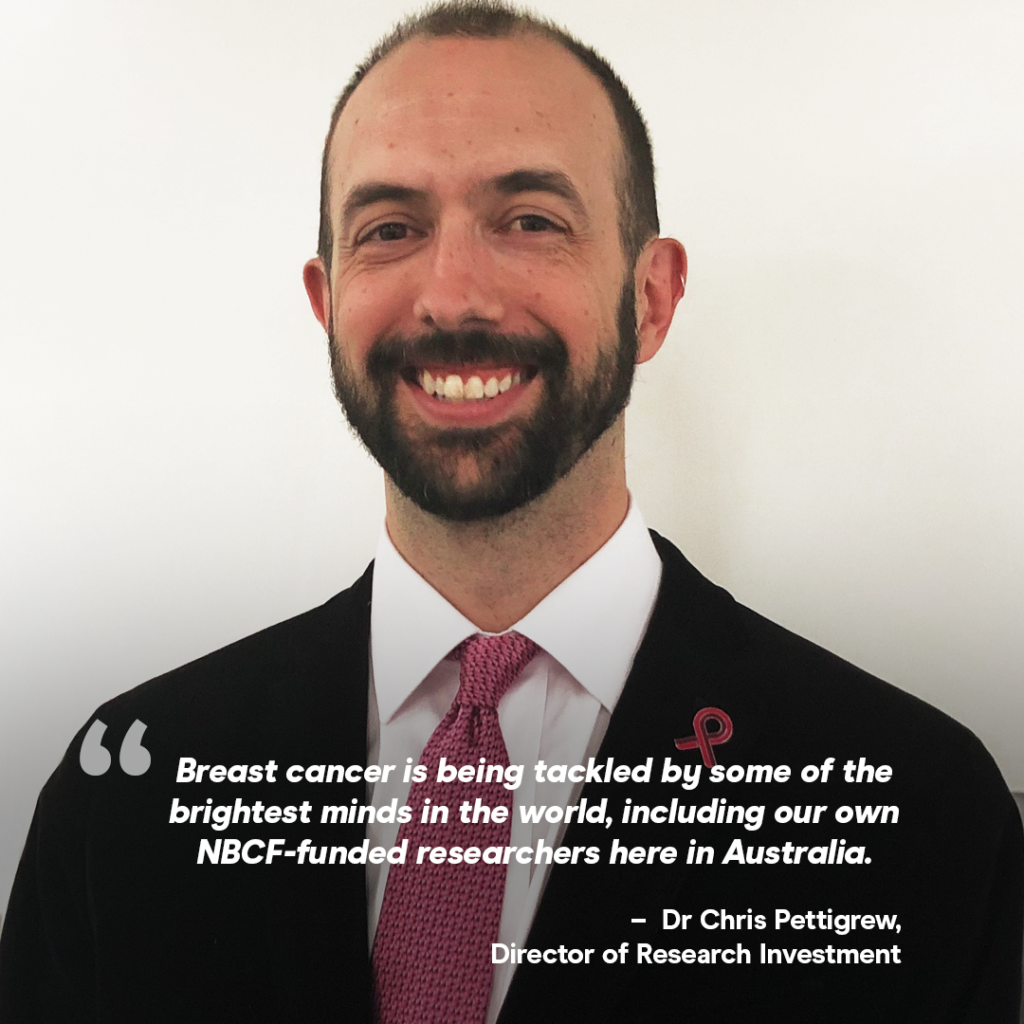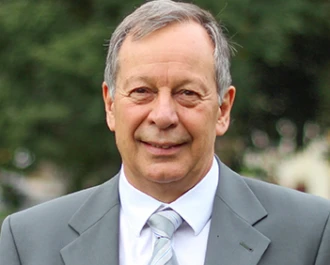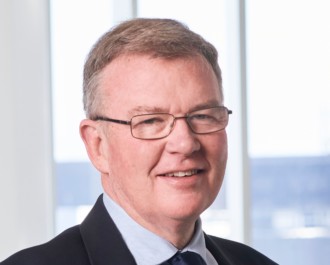
By Dr Chris Pettigrew, NBCF Director of Research Investment
I was really excited and honoured to attend the 2018 San Antonio Breast Cancer Symposium in the US from 3 – 8 December 2018. The Symposium is the largest annual breast cancer conference and as it focusses on translational research it attracts the foremost breast cancer researchers and clinicians from around the world. It was great to see some NBCF-funded researchers attending and presenting their work to the world.
Overall, the conference demonstrated just how much progress there has been in breast cancer research worldwide. Given the complexity of the disease, this is something that should be celebrated. However, there is still much work to be done by the research community before we can get to zero deaths.
Two of the most exciting developments were presentations of the results of phase 3 clinical trials. The IMPassion 130 trial for a new immunotherapy in breast cancer was presented by Dr Leisha Emens in from the University of Pittsburgh. NBCF Endowed Chair Professor Sherene Loi from the Peter MacCallum Cancer Centre in Australia is also involved in this trial. Their results showed that immunotherapy definitely has promise as a treatment for breast cancer. However, the trial also highlighted how important it is to know the characteristics of the tumour before making a treatment decision, as some patients did not respond positively to the immunotherapy, and this has been linked back to the number and type of immune cells infiltrating the tumour prior to the treatment.
The KATHERINE trial for a new generation of treatment for HER2+ breast cancers was presented by Prof Charles Geyer Jr from Virginia Commonwealth University. This drug is a combination of a Trastuzumab (also known as Herceptin) linked to a powerful chemotherapy drug. This molecule can specifically target the cancer cells and deliver the chemotherapy directly to those cells. Significant improvements in disease-free survival and the risk of invasive recurrence were seen above the current standard of care, and this result has been widely described as “practice-changing”.
Another important presentation was delivered by Dr Ann Partridge from the Dana Farber Cancer Institute in the US about the latest insights and trends with respect to breast cancer in younger women. Dr Partridge’s data showed that women under 40 with breast cancer generally have poorer outcomes, and these breast cancers are quite different biologically to those in older women. Further, these young women have poorer quality of life after breast cancer, particularly on emotional and social levels. The research also revealed that this group has a poorer adherence to ovarian suppression therapy, even though it has been shown to improve breast cancer survival. Dr Partridge’s work has made it abundantly clear that breast cancer in women under the age of 40 has unique challenges that need to be addressed.
A big focus area of the presentations was addressing the spread of breast cancer (metastasis), as well as the risk of recurrence and relapse. Numerous studies have been looking at the genetic differences between primary breast cancers and those that have metastasised, aiming to identify therapeutic targets to stop metastasis before it happens. Additionally, a common misconception is that women that have been affected by breast cancer are ‘cancer- free’ after five years, however breast cancer can remain dormant in the body for more than ten years. For example. Karen Bussard from Jefferson University presented work demonstrating how normal bone cells are able to suppress breast cancer cells that have migrated to bone.
Overall, the Symposium really drove home that we are tackling breast cancer research from many different angles by some of the brightest minds in the world, including some of our own NBCF-funded researchers.
More News Articles
View all News



